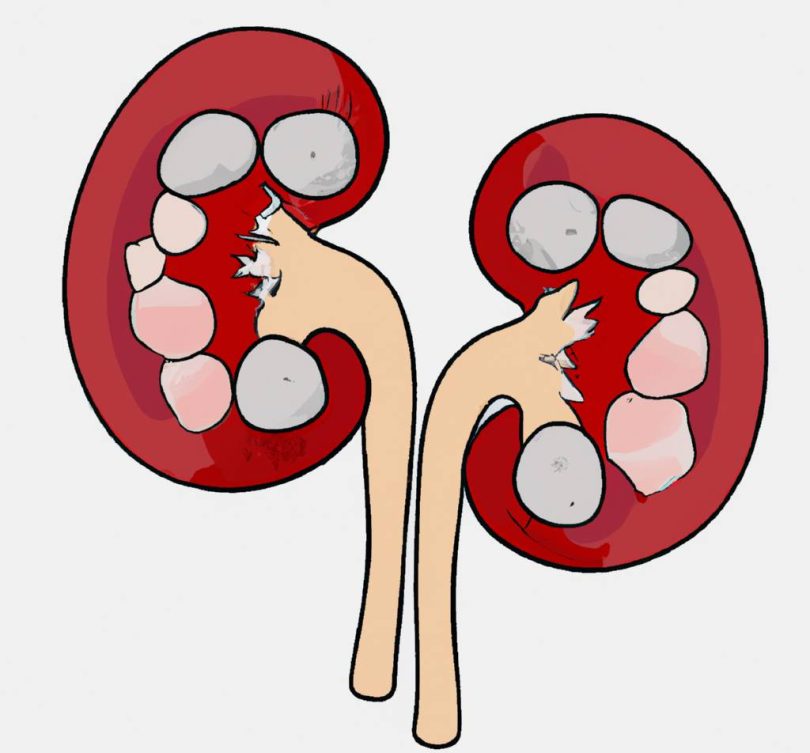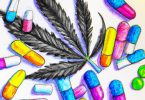A team of top urologists has just released the results of a recently concluded randomized and placebo controlled study that investigated the effect of cannabidiol oil on relieving pain and discomfort after stent placement for renal calculi. Well, the researchers found that CBD was no better than a placebo in this regard, or should we say that 20mg of CBD (in the form of Epidiolex) given once a day for a period of three days, was as good as the placebo? 20mg CBD. Really? The researchers stated that they chose the 20mg dose “with the assistance of pharmacy colleagues.” But hold that thought.
Details of the Study
This was a randomized, double-blind, and placebo-controlled prospective study whose results were published in the Journal of the American Urological Association. [1] A total of 94 patients undergoing stent placement for kidney stones were randomized and included as participants in the study. They were randomized to a placebo and CBD group in a ratio of 1:1. The CBD group received 20mg of CBD while the rest received an inactive placebo. Both placebo and CBD oil were packed in identical syringes. The patients were also offered the opioid oxycodone as a “rescue medication.” They were also discharged with 0.4 mg tamsulosin, 5 mg oxybutynin, and 200 mg phenazopyridine to be used as needed.
After the three days, the researchers arrived at the following conclusion: Though CBD (20mg) is safe, it is ineffective in reducing discomfort or opioid use after placement of stent for kidney stone, when compared to placebo.
In a journal news release, the lead author of the study had this to say: “Our study provides high-quality evidence to counsel patients in this situation: While CBD oil appears safe, it does not seem to reduce pain or discomfort during the typically brief recovery period after this common procedure,” said Karen L. Stern.
Here’s what you should first understand about Epidiolex.
Epidiolex is a drug whose primary active molecule is cannabis-derived CBD. It was the first cannabis-based drug to be approved by the FDA and this happened back in 2018. Epidiolex has been approved for the treatment of intractable childhood seizures: Lennox-Gastaut syndrome and Dravet’s syndrome. Note that this study was an “off-label” use of CBD.
What’s the recommended dosage for Epidiolex?
The recommended dosage for Epidiolex is 2.5mg/kg/day to 5 mg/kg/day. For a 10kg child, this would mean 25mg to 50mg per day. For a 70 kg man, this would mean 175mg to 350mg per day.
With this in perspective doesn’t a dose of 20mg/ day seem too little even for a child? And do bear in mind that pain is the most reported complication after ureteroscopy and the most common cause of admission after the procedure. [2]
What’s the safe limit for CBD?
In a recently published phase 3 trial of Epidiolex participants were given a minimum of 5mg/kg/day (equivalent of 350mg for a 70 kg man) to 50mg/kg/day (the equivalent of 3,500mg for a 70 kg man). [3] The researchers noted two points of significance:
-
Onset of treatment effect occurred within 6-10 days
-
The most common adverse events (diarrhea, decreased appetite, and somnolence) resolved within 16 weeks in most patients
For sure, 20mg of CBD daily might not be effective at relieving pain and discomfort after kidney stone treatment. However, this does not discredit CBD’s pain-relieving, anti-inflammatory, and anti-anxiety benefits. Some worthy recommendations for future studies would perhaps be higher doses of CBD and for a longer duration or combining CBD with opioids for acute pain. Testing full spectrum CBD or CBD in combination with THC (1:1) would also be a noble idea.
References
-
Narang, G., Moore, J., Wymer, K., Chang, Y. H., Lim, E., Adeleye, O., Humphreys, M. R., & Stern, K. L. (2023). Effect of Cannabidiol Oil on Post-ureteroscopy Pain for Urinary Calculi: A Randomized, Double-blind, Placebo-controlled Trial. The Journal of urology, 209(4), 726–733.
-
Gul, Z., Alazem, K., Li, I., & Monga, M. (2016). Predicting procedural pain after ureteroscopy: does hydrodistention play a role?. International braz j urol : official journal of the Brazilian Society of Urology, 42(4), 734–739.
-
Wu, J. Y., Cock, H. R., Devinsky, O., Joshi, C., Miller, I., Roberts, C. M., Sanchez-Carpintero, R., Checketts, D., & Sahebkar, F. (2022). Time to onset of cannabidiol treatment effect and resolution of adverse events in tuberous sclerosis complex: Post hoc analysis of randomized controlled phase 3 trial GWPCARE6. Epilepsia, 63(5), 1189–1199.










